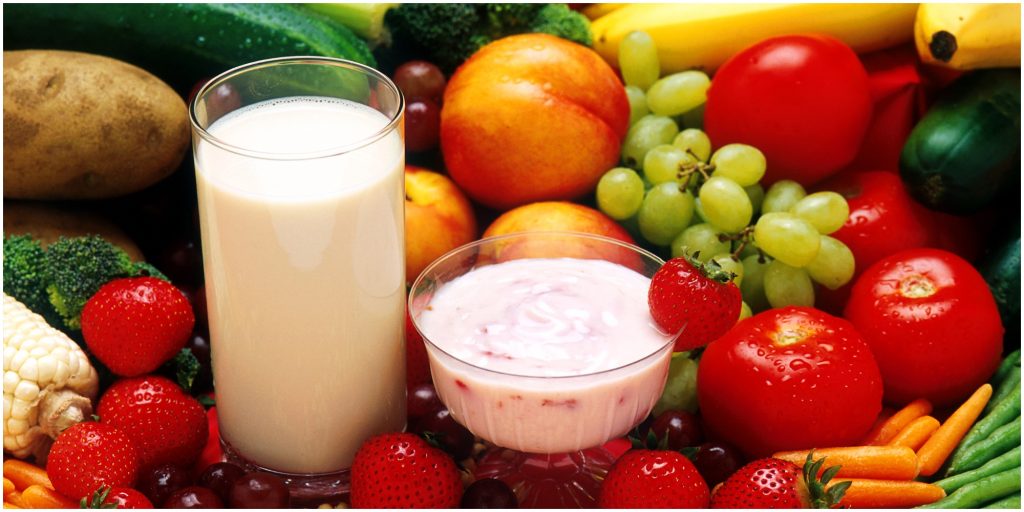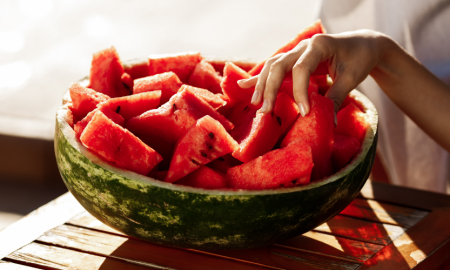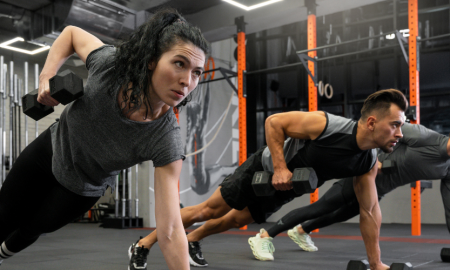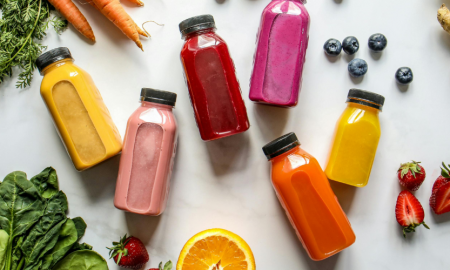
Here’s What You Will Actually Miss If You Switch To A Vegan Diet

Many people have embraced the vegan lifestyle, and there is a bunch of reasons why they have done so. Generally, people and their choice of food are deeply affected by spiritual and social reasons. Besides that, a lot of Hollywood A-listers and social media influencers have switched to veganism lately which has inspired a lot of people to take veganism more seriously than ever before.
A vegan diet is mainly plant-based, consisting of vegetables and fruits which are laden with nutrients. Many are unaware of the fact that a vegan diet lacks the nutrients which are absolutely essential for your physiological functions. According to scientific studies, people who follow a vegan diet are susceptible to the deficiency of calcium, zinc, iron, B12, vitamins A and D, and fatty acids DHA & EPA. What do you miss out on when you switch to a vegan diet? Read on.
Vitamin B12
 Recent studies have suggested that 83% of those following a vegan diet and 68% of vegans have a deficiency of B12 in comparison to a meager 5% in people who are omnivorous. B12 aids in the synthesis of the red blood cells as well as DNA. You might suffer from general weakness, memory loss, lethargy, constant fatigue, anemia, and various other psychiatric and neurological problems if you do not get adequate amounts of vitamin B12 through your meals.
Recent studies have suggested that 83% of those following a vegan diet and 68% of vegans have a deficiency of B12 in comparison to a meager 5% in people who are omnivorous. B12 aids in the synthesis of the red blood cells as well as DNA. You might suffer from general weakness, memory loss, lethargy, constant fatigue, anemia, and various other psychiatric and neurological problems if you do not get adequate amounts of vitamin B12 through your meals.
Calcium
 Contrary to popular belief, vegans generally suffer due to the lack of calcium. It is believed that a leafy diet like spinach is laden with calcium, but the proper absorption of it during digestion is inadequate. According to a study, just a glass of milk weighing 8 ounces will provide you with the same level of calcium that you can get from 16 plates of spinach. Though there a few vegetables which are laden with high levels of calcium, it will necessitate several servings to fulfill the amount of calcium that you can procure from an individual serving of cheese, milk, or yogurt.
Contrary to popular belief, vegans generally suffer due to the lack of calcium. It is believed that a leafy diet like spinach is laden with calcium, but the proper absorption of it during digestion is inadequate. According to a study, just a glass of milk weighing 8 ounces will provide you with the same level of calcium that you can get from 16 plates of spinach. Though there a few vegetables which are laden with high levels of calcium, it will necessitate several servings to fulfill the amount of calcium that you can procure from an individual serving of cheese, milk, or yogurt.
Iron
 Vegans generally have lower levels of ferritin in their bodies as compared to omnivores. Signs of ferritin deficiency imply the depletion of iron. It is usually believed that the intake of iron in vegans is at par with that of omnivores, but vegans tend to suffer from a greater deficiency in terms of their iron levels. This is because there’s a lower level of iron found in plant-based food. Iron present in all plant forms is also bottled up by tea, coffee, and other products.
Vegans generally have lower levels of ferritin in their bodies as compared to omnivores. Signs of ferritin deficiency imply the depletion of iron. It is usually believed that the intake of iron in vegans is at par with that of omnivores, but vegans tend to suffer from a greater deficiency in terms of their iron levels. This is because there’s a lower level of iron found in plant-based food. Iron present in all plant forms is also bottled up by tea, coffee, and other products.
EPA and DHA
 Plant-based foods generally comprise omega-3 and omega-6 fatty acids. A fatty acid can’t be synthesized or manufactured within the body and therefore, should be consumed in a diet. Omega-3 fatty acids DHA and EPA protect the body from diseases like asthma, depression, cancer, and rheumatoid arthritis, among others. When compared to non-vegans and omnivores, vegetarians possess 30% less DHA and EPA whereas vegans possess 60% and 50% lower amounts of DHA and EPA respectively.
Plant-based foods generally comprise omega-3 and omega-6 fatty acids. A fatty acid can’t be synthesized or manufactured within the body and therefore, should be consumed in a diet. Omega-3 fatty acids DHA and EPA protect the body from diseases like asthma, depression, cancer, and rheumatoid arthritis, among others. When compared to non-vegans and omnivores, vegetarians possess 30% less DHA and EPA whereas vegans possess 60% and 50% lower amounts of DHA and EPA respectively.
Vitamins A and D
 A deficiency of vitamins A and D in vegetarians and vegans is considered to be a substantial problem. Vitamin A is responsible for good eyesight and skin, fertility, and immunity. Vitamin D plays a big role in reducing the risks of cancer and inflammation and takes care of calcium metabolism. These vitamins play an integral role and are primarily found in various animal foods such as eggs, dairy products, seafood, and meat. People believe that a plant-based diet contains an ideal amount of vitamin A, but that is actually not the case. It’s not possible to derive an optimum level of vitamin A from plant-based food. The only remaining alternative is the consumption of supplements to cater to the deficiency.
A deficiency of vitamins A and D in vegetarians and vegans is considered to be a substantial problem. Vitamin A is responsible for good eyesight and skin, fertility, and immunity. Vitamin D plays a big role in reducing the risks of cancer and inflammation and takes care of calcium metabolism. These vitamins play an integral role and are primarily found in various animal foods such as eggs, dairy products, seafood, and meat. People believe that a plant-based diet contains an ideal amount of vitamin A, but that is actually not the case. It’s not possible to derive an optimum level of vitamin A from plant-based food. The only remaining alternative is the consumption of supplements to cater to the deficiency.
Should You Become A Vegan?
It’s totally your choice as to whether or not you should become vegan. On one hand, you’re doing your part to save the environment (did you know livestock farms emit huge amounts of greenhouse gases?) by reducing your carbon footprint. On the other hand, you will have to deal with nutritional deficiencies which you can resolve by consuming supplements and a few alternatives — for example, you can increase your intake of omega-3 fatty acids by including marine algae in your diet. So, the choice is yours.
More in Diet
-
`
Are Mono Diets Worth It – or Just a Dangerous Trend?
As summer brings on the pressure to slim down fast, the internet lights up with diet trends promising instant results. One...
August 3, 2025 -
`
Why Motivation Is Essential for Sustainable Fitness Success
Motivation isn’t something that shows up when it’s convenient—it’s something that needs to be built, shaped, and sustained. Many people struggling...
July 27, 2025 -
`
The Mystery of Human Body Parts That Science Still Can’t Solve
The human body is a patchwork of evolutionary choices, quirks, and mysteries. From skeletal structure to the tiniest gland, everything tells...
July 18, 2025 -
`
Why a Mediterranean Diet and Exercise Slow Bone Loss in Seniors
Bone health isn’t just a concern for the elderly—it’s something that starts to matter the moment the body begins to lose...
July 12, 2025 -
`
Want Better Memory? This Diet Could Help Keep Your Brain Sharp
Losing focus, memory lapses, or slower thinking—these aren’t just normal parts of aging. While cognitive changes do happen over time, lifestyle...
July 5, 2025 -
`
The Truth About Health Tracking Apps and Their Impact on Wellness
Scroll through social media or browse the App Store, and you’ll likely spot dozens of health tracking apps. They promise everything—from...
June 29, 2025 -
`
New Study Reveals Alzheimer’s Affects the Entire Body
Most people associate Alzheimer’s with memory loss and cognitive decline, assuming its impact stays confined to the brain. But new findings...
June 21, 2025 -
`
The One Simple Habit Mark Cuban Credits for His Success
Success doesn’t come from shortcuts or luck—it’s built on habits that stand the test of time. Mark Cuban, the outspoken billionaire,...
June 14, 2025 -
`
Thinking of a Detox Diet? Read This Before You Start
Detox diets continue to be one of the most talked-about trends in the wellness space. Whether it’s juice cleanses, tea plans,...
June 8, 2025









You must be logged in to post a comment Login